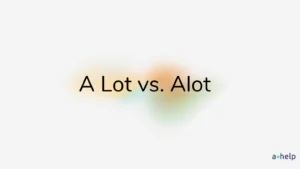Every language comes with its set of complexities, including words that are tricky to spell, pronounce, and easily confused due to their similarities. Without proper understanding, it’s easy to misuse them, and the confusion between “bougie” and its common confusion with “boujee” is understandable in this case. To answer briefly, you need to spell “bougie” letter by letter as B-O-U-G-I-E. Don’t miss the opportunity to read a more detailed explanation below though or use a grammar checker just in case.

✅ AI Essay Writer ✅ AI Detector ✅ Plagchecker ✅ Paraphraser
✅ Summarizer ✅ Citation Generator
Bougie: The Meaning and Origin of the Word 🇫🇷
Originating from the French word “bourgeoisie,” which refers to the middle class or materialistically inclined individuals, it has been shortened and anglicized to “bougie.” This term is often used to describe someone pretending to be of a higher economic class or old money, showcasing an upscale and pretentious lifestyle.
Let’s consider it in various sentences that show how we can use it in everyday language. As the term “bougie” is often used to describe someone or something that attempts to project an aura of sophistication or wealth (often pretentious), here are a few relevant examples:

“Look at you, sipping on that $10 coffee from the fancy cafe, so bougie.”
“Ever since he got that promotion, Mark has been acting so bougie, talking non-stop about his gourmet cooking classes.”
“Their wedding was incredibly bougie, with a live orchestra, swan ice sculptures, and a five-course meal at a high-end country club.”
“Driving around in his new luxury car, he seems to enjoy showing off his bougie lifestyle to everyone in the neighborhood.”
These sentences illustrate how “bougie” can be applied to different contexts, from commenting on someone’s expensive tastes to observing the over the top display of wealth.
Bougie: Proper Spelling and Pronunciation
To clarify the pronunciation and make the spelling of “bougie” without mistakes, we think it’s helpful to include a phonetic transcription. The word “bougie” is pronounced as /ˈbuːʒi/, where:
- the “ou” sounds like “oo” in “food,”
- the “gie” ends with a soft “g” sound, similar to “gee” in “geese.”
This transcription makes it easy to destinguish “bougie” from similar terms and ensures correct usage in speech and writing.

Bougie vs. Boujee
The confusion between “bougie” and “boujee” stems from their similar pronunciation and spelling. However, they represent slightly different social strata and lifestyles. “Boujee,” derived from the same root, it refers to people who have recently become wealthy and live a flashy lifestyle, that includes ‘swag’ and ‘being a baller’. Unlike “bougie,” “boujee” carries a more positive connotation, often used in hip-hop slang to celebrate success and a luxurious lifestyle.
This difference illustrates the importance of context and connotations. While “bougie” might critique someone’s pretense or superficial attempts at seeming affluent, “boujee” acknowledges a person’s journey to success and their ability to enjoy the finer things in life while remembering their roots. These terms, though interchangeable in some discussions, are distinct in their usage, reflecting different aspects of social mobility and lifestyle choices. Below you will see a few sentences we included to help you visualize the difference between the two terms.


While “bougie” and “boujee” may seem similar at first glance, their meanings and undertones are quite different.
FAQ
Follow us on Reddit for more insights and updates.





Comments (0)
Welcome to A*Help comments!
We’re all about debate and discussion at A*Help.
We value the diverse opinions of users, so you may find points of view that you don’t agree with. And that’s cool. However, there are certain things we’re not OK with: attempts to manipulate our data in any way, for example, or the posting of discriminative, offensive, hateful, or disparaging material.